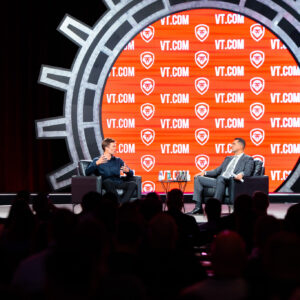Not every American is embracing an artificial-intelligence based future. In fact, it appears that most have more than a few concerns.
Reason Magazines notes a Reuter’s poll with bombshell results. 61% of Americans feel that the new technology could threaten the future of civilization, while 69% are worried about AI’s general negative effects.
And a separate YouGov poll projects that Americans want to pump the breaks on AI entirely, at least for six months. 70% felt that a half year pause on developing all things AI would be prescient.
These polls reflect the turning tide of some key tech CEOs, whose take on the topic might surprise you. Apple’s Steve Wozniak and Tesla maven Elon Musk lent their names to an open letter saying, “AI systems with human-competitive intelligence can pose profound risks to society and humanity. AI labs should be immediately paused for at least 6 months the training of AI systems more powerful than GPT-4.”
Read between the lines? Two of the more powerful tech players publicly profess that they won’t be aiming to reflexively implement AI into their technology devices in the very near future. When players in the tech world says something is moving too fast, they most likely see repercussions that even the public isn’t aware of yet. It’s just a letter, but it’s a letter that prints the entire direction of the technology sector as AI becomes all the more prevalent.
Robin Hanson, an economics professor at George Mason put it this way: “Whenever a technology threatens to make fundamental changes to society, then people get much more scared. Think genetic engineering or nuclear energy.” He sort of says this with a shrug. But here’s the problem. Nuclear energy has killed hundreds of thousands of people. It’s a technology that has, objectively, made our world more dangerous.
Looks like a bleak future for the working world.


















I would like to question whether we should revert to old technology because the new technogy may disrupt the way we live and work. I will illustrate with questions.
Word processors. Should we ditch word processors for the typing pool?
Telephones: Should we remove automatic telephone exchanges and cell phonez and reintroduce operators to route through telephone lines?
Internet: get rid of the internet. Replace with fax machines, telex machines, telegrams? Why not replace with snail mail as the dominant source of communications? Why not replace that with semaphore stations? Better still replace that with smoke signals?
Agriculture: get rid of combine harvesters. Replace with people swinging sickles and reapers. Bring back the oxcart and plough.
In all these cases people havw been displaced from the old jobs. New jobs are formed. The disruptions have not resulted in a permanent underclass. We have been liberated to do other kindsof jobs.
To what limit do you stop technological progress? Do want to work in the fields and manually harvest crops. Do you want to work in a typing pool all day where instead everyone in the office is empowered to make professional documents?
I put these points out there that people had to move to new opportunities when the staus quo was disrupted.
There wasn’t an underclass perpetuated from the old ways of agriculture to today. Those who worked on farms went to work in the city’s factories for better opportunities.
Look at those jobs involved with the internet. 30 years ago, those jobs never existed.
New disruptions, new ways of doing things.
Furthermore I bet you that you wouldn’t want to miss out the mod cons of life and work if we revert to old technology.
Thank you
Anthony of Sydney